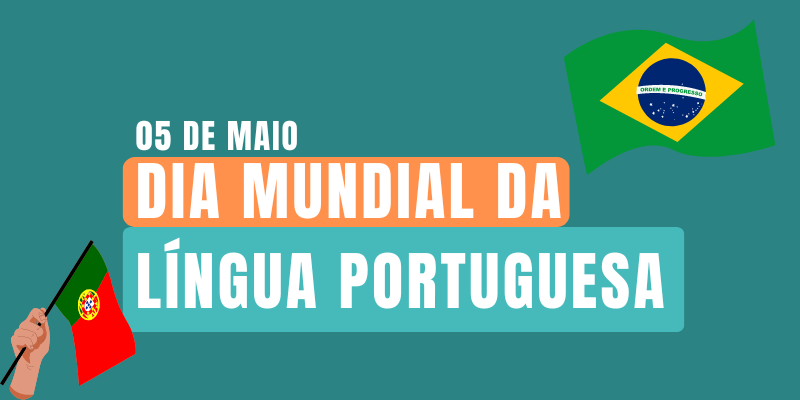Dia mundial da Língua Portuguesa
Sexta, 5 de maio de 2023

Se você está lendo esse texto, é porque ele foi codificado em uma linguagem compreensível e objetiva, ou seja, foi escrito em um idioma. A importância da comunicação não pode ser subestimada e é por isso que no dia 05 de maio comemoramos o Dia Mundial da Língua Portuguesa. A data é celebrada desde 2009 por resolução da XIV Reunião Ordinária do Conselho de Ministros da CPLP, que ocorreu na cidade da Praia, Cabo Verde. Posteriormente, com a adesão da UNESCO, a celebração se tornou mundial.
O português é língua oficial de nove países (Angola, Brasil, Cabo Verde, Guiné-Bissau, Guiné-Equatorial, Moçambique, Portugal, São Tomé e Príncipe e Timor-Leste), além da Região Administrativa Especial de Macau (China) e conta com aproximadamente 265 milhões de falantes nativos.
Mas, como surgiu nossa tão amada língua? A língua portuguesa surgiu do latim, que era falado pelos romanos que viviam na Península Itálica. Por serem navegantes, esse povo se utilizava da forma vulgar da língua para se comunicar. Todas essas trocas deram as bases para o Português nascer. Nesse período, o latim tinha duas modalidades: vulgar e clássico. Entre tantos dialetos do latim e inúmeras migrações entre os continentes, surge o Português.
A Língua Portuguesa também nos rendeu incríveis escritores e poetas, como Luís de Camões, Fernando Pessoa, Machado de Assis, Carlos Drummond de Andrade e outros tantos ícones da literatura lusófona.
E para você, qual o aspecto mais fascinante da Língua e Literatura Portuguesa?
--
If you are reading this text, it is because it was codified in a clear and objective system, that is, in a language. The importance of communication cannot be underestimated and that is the reason why on May 5th we celebrate the World Portuguese Language Day. The date has been celebrated since 2009 after the resolution by the XIV Reunião Ordinária do Conselho de Ministros da CPLP, which took place in the city of Praia, in Cape Verde. Thereafter, with the adherence of UNESCO, the celebration became worldwide
Portuguese is the official language of nine countries (Angola, Brazil, Cape Verde, Guinea-Bissau, Equatorial Guinea, Mozambique, Portugal, Sao Tome and Principe, and Timor-Leste), besides the Macau Special Administrative Region (China), and its number of native speakers amounts to around 265 million people.
But, how was our beloved language born? The Portuguese Language came from Latin, which was spoken by the Romans who lived in the Italian Peninsula. As they were travelers, these people made use of the language in a rather vulgar way. These exchanges paved the way for Portuguese to arise. Around this time, Latin had two modalities: Vulgar and Classic. Among so many dialects, and countless migrations from and to other continents, Portuguese comes into place.
Our language also produced many incredible writers and poets, such as Luís de Camões, Fernando Pessoa, Machado de Assis, Carlos Drummond de Andrade, among many other icons of the Portuguese Language literature.
And for you, what’s most fascinating about the Portuguese Language and literature?